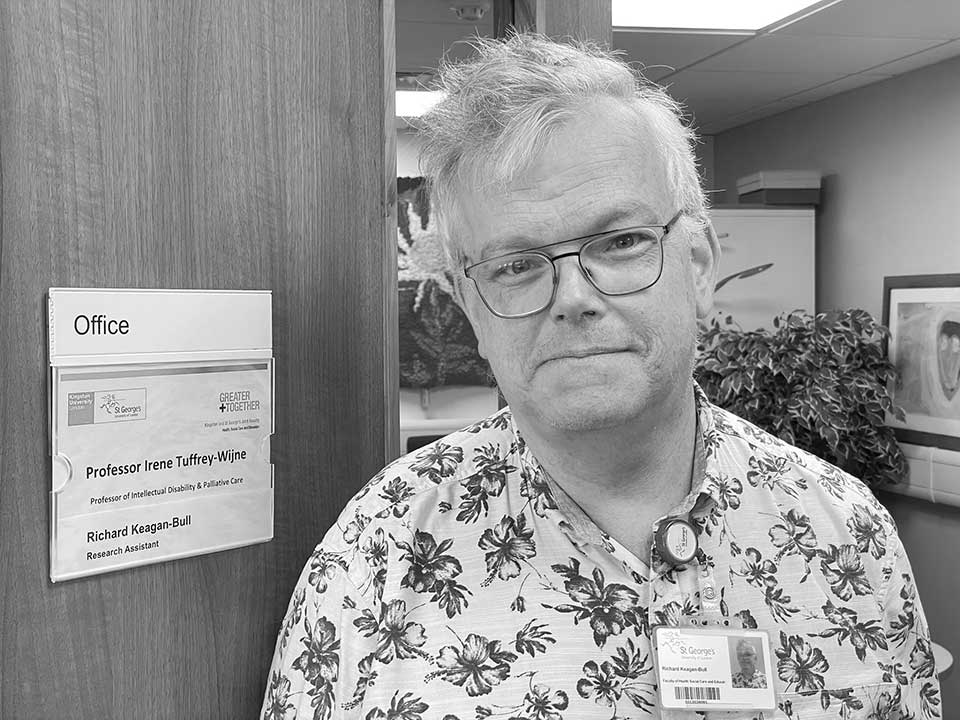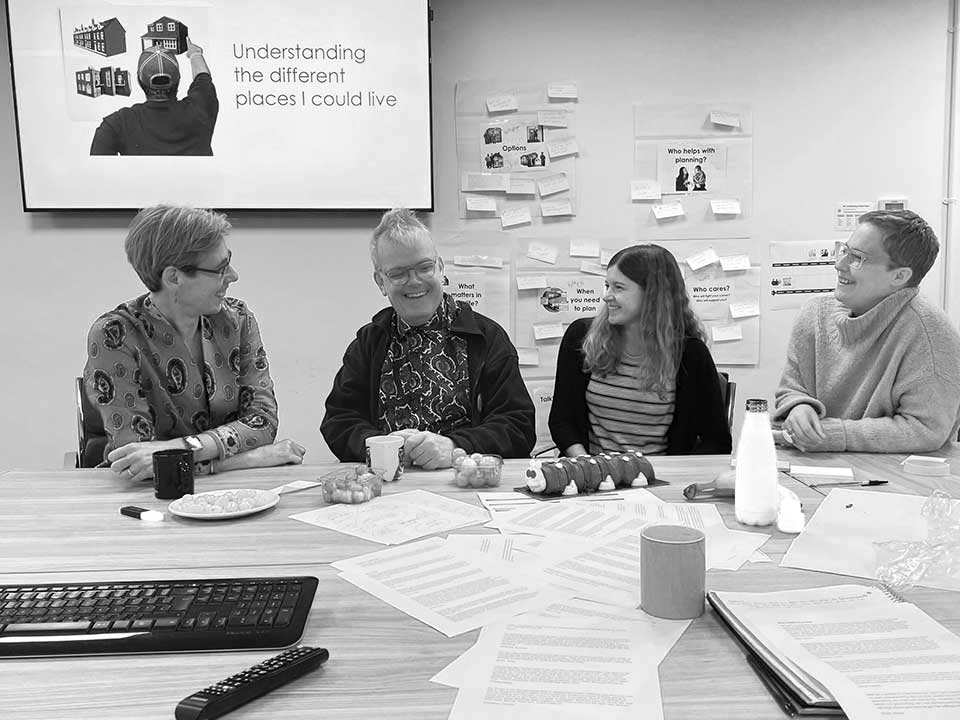
I started my job as a research assistant at Kingston and St George’s University in London in January 2021. A few years ago, I did a course there for people
with learning disabilities about how to do research.
One of the teachers was Professor Irene Tuffrey-Wijne, who said that she was hoping to get some funding to employ a person with a learning disability to help her do some research.
She asked if I would like to apply for the job, but I think she asked all the other students and everyone with a learning disability in her network also, not just me.
So, in December 2020, I saw the job application and so I applied. I was lucky enough to get an interview. So I had the interview – I was all dressed up smart.
The interview was on Zoom – it was a bit strange, it was. After the interview, Irene said: “Thank you very much, Richard. We will let you know by the end of the week, but it might be by the end of the day.”
In the afternoon the telephone rang. Irene had called me to say: “Congratulations, Richard! You got the job on the Growing Older project.” I said: “Thank you very much, Irene.”
I felt quite excited. It was nice to get a proper job where I would get paid at the end of the month. It’s a big thing for me. I now have a proper ID card to get into the university, I have. It’s quite exciting. It makes you feel important to have an ID card to get into the research offices where I work. I can even go into the staff canteen.
So I started my job working with Irene. For the first months it was all done on computer because of Covid, so it was all a bit weird. The team is Irene the professor, Becky the doctor who I’ve been working with mostly on the research, and me the research assistant.
Irene said: “The first thing we’ve got to do is to employ someone who can support you, Richard, in doing your job.”
We ended up doing the interview to find someone to help me. We found a nice woman called Jo. We have given ourselves a name now – we’re the A-Team we are!
Practical research
I’ve been working there since January 2021. I work on the Growing Older, Planning Ahead project. I do that on a Wednesday. It is about people with a learning disabilities who are still living with their families in their 40s. It’s about finding them help a way to plan for the future, when their mum and dad are sadly no longer around.
I’ve been busy doing interviews with people with learning disabilities, and now we are running a group with families.
On a Tuesday morning, we have started doing work with the LeDeR programme. This is about finding out why people with learning disabilities die sooner than they should. We have a group of six people with learning disabilities who meet together and talk about it. Jonny comes in to lead the project, and Tasha helps to support me in my work on a Tuesday. So we have quite a team of people here now.
We didn’t really like the name LeDeR, so we’ve renamed it Staying Alive and Well. That was my idea.
We also have a new study starting in April. It is about end-of-life planning for people with learning disabilities. It will probably be on a Thursday.

So now we are joking that I am Staying Alive on a Tuesday, I’m Growing Older on a Wednesday, and I’ll be Planning My Funeral on a Thursday!
So there has been lots going on this year. Lots of people asking me to do things, like give talks. The highlight of my year was being put on the Disability Power 100 list. So that’s me, being one of the 100 most influential disabled people in the UK. I’ve asked the team now to start putting the red carpet out for me!
The first time I went in to do my job in the office at the hospital after lockdown, Becky and Irene were away. Jo and me went into the office on our own and did a bit of investigating around the place so we could get our bearings and all that.
When we got to Irene’s office, there was a nice card in her office for me saying, “Welcome Richard!” and two boxes of chocolates, one for me and one for Jo, to say, “You made it!” and then I looked at the door. It had “Professor Irene Tuffrey-Wijne” on it and, underneath it, “Richard Keagan-Bull: Research Assistant.”
So I thought, “I’ve really made it. My name on the door!”
This is an edited extract from Richard Keagan-Bull’s Life Story, which he hopes will be published soon.
Richard Keagan-Bull is a self-advocate and research assistant, and sits on Community Living’s editorial board




